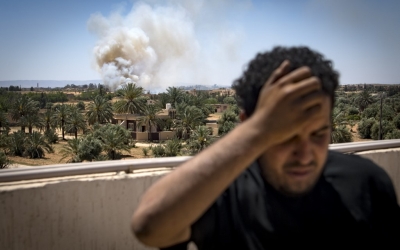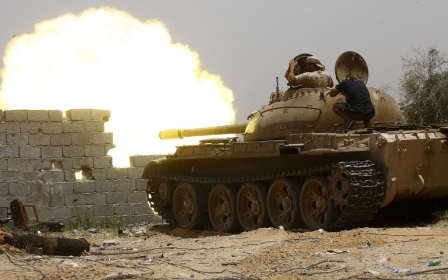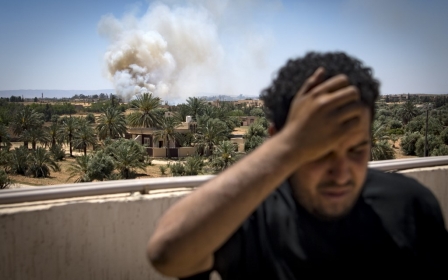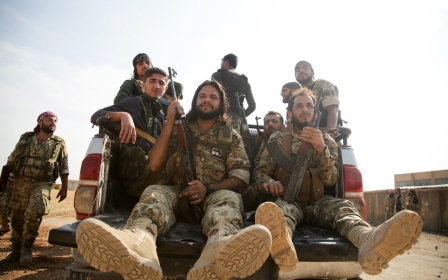Erdogan and Putin set 12 January deadline for Libya ceasefire
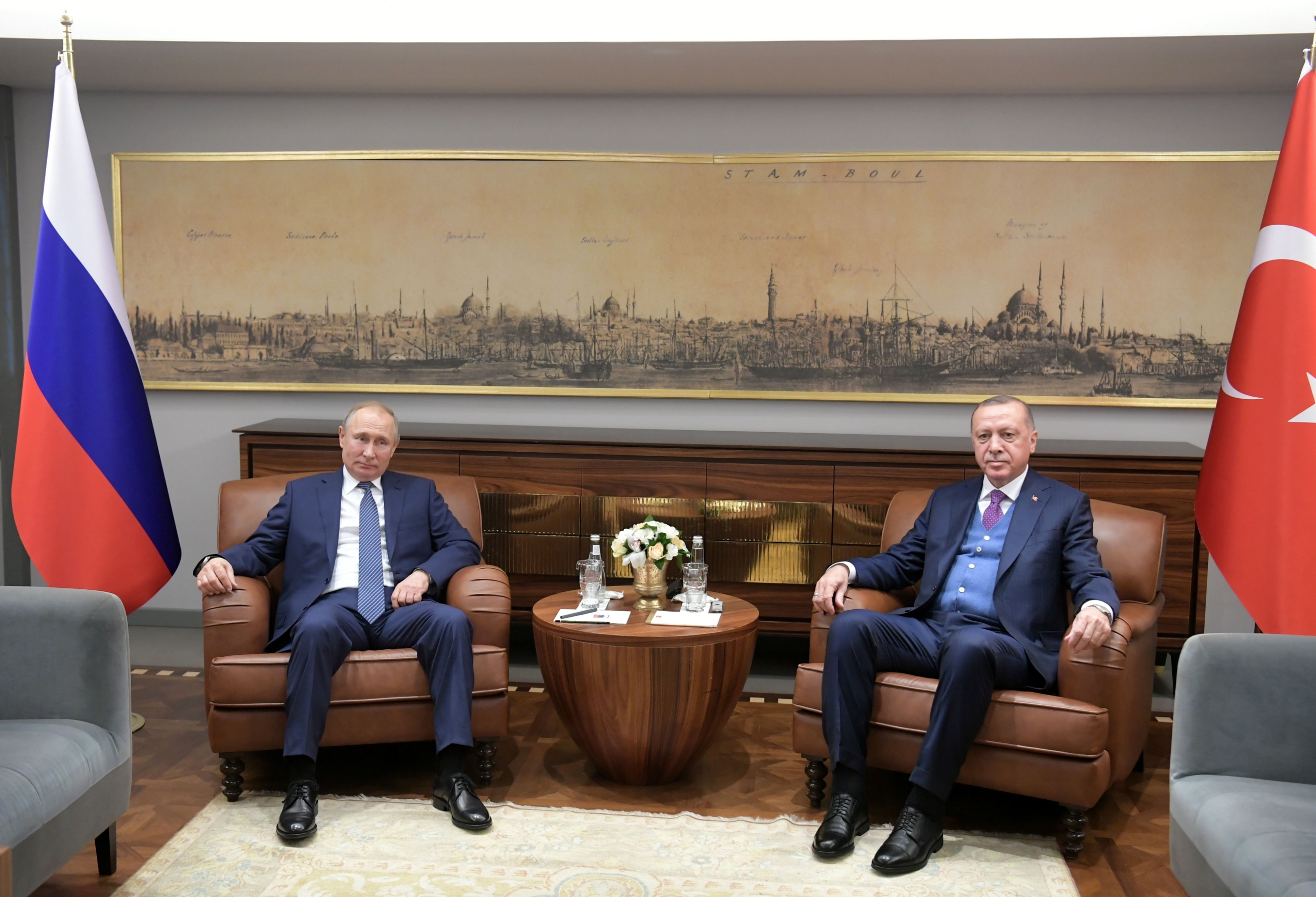
Turkey and Russia on Wednesday called on warring parties in Libya to reach a ceasefire by midnight 12 January.
In a joint statement, Turkish President Recep Tayyip Erdogan and Russian President Vladimir Putin said “as intermediaries” they invite all parties in to stop hostilities, stabilise the situation on the ground and normalise daily life in Tripoli and other cities.
“We call on all parties in Libya to immediately come together around a negotiating table,” said the statement, which was released as Putin visited Erdogan in Turkey.
“We are confident that the Libyans can independently decide on the future of their homeland in the framework of a nationwide dialogue taking into account the interests of all its citizens without exception.”
Putin and Erdogan met in Istanbul for the inauguration of TurkStream natural gas pipeline, which has been operational since the beginning of the January.
New MEE newsletter: Jerusalem Dispatch
Sign up to get the latest insights and analysis on Israel-Palestine, alongside Turkey Unpacked and other MEE newsletters
The US Congress passed a sanctions law against the project last month, mainly for bypassing Ukraine and Poland and providing Russia a new line to sell energy resources to Europe.
Turkey and Russia have emerged as key players in the Libyan conflict, in which Khalifa Haftar’s self-styled Libyan National Army (LNA) is battling the UN-recognised Government of National Accord (GNA).
'We call on all parties in Libya to immediately come together around a negotiating table'
- Erdogan and Putin
Since April, the LNA has been staging an assault on GNA-held Tripoli, but for months, the two sides were stalemated.
However, in recent weeks, and notably following the introduction of Russian Wagner Group mercenaries on Haftar’s behalf, the LNA has made significant progress. On Monday, Haftar’s forces captured the key city of Sirte.
In response to the LNA’s recent gains, Turkey has begun deploying its forces to Libya to support Ankara’s ally, the GNA.
So far, Turkish military advisers and Turkey-backed Syrian fighters have arrived in the North African country.
Turkish Foreign Minister Mevlut Cavusoglu, speaking alongside his Russian counterpart Sergei Lavrov, said he hopes the ceasefire will embolden the Berlin process seeking to resolve the conflict.
Lavrov added that they expect neighbouring countries to actively join the Berlin process to help end the conflict.
Observers sceptical
Since Turkey expressed its intention to intervene in the conflict last month, analysts have predicted that Ankara and Moscow will begin positioning themselves as peacemakers in Libya.
However, observers are sceptical that such a call for a ceasefire will bear any fruit.
Kerim Has, a Moscow-based expert on Turkish-Russian relations, told Middle East Eye that it would be extremely hard to impose a truce.
“They tried to save face. Their views and the positions on Libya are fundamentally opposite. Just recently, General Haftar forces seized Sirte with the backing of Russian forces,” he said.
“There are a multitude of articles on Russian media that severely criticise Ankara for providing military support to Tripoli. I cannot imagine that this is happening without Kremlin’s knowledge. There may be some pause in the field after this statement but don’t think it will continue for long.”
A senior Turkish official, on the other hand, said that they believe Russia’s call for a ceasefire could have an impact on Haftar.
Putin has been active in the region in recent days, visiting his ally President Bashar al-Assad in Syria on Tuesday.
The regional tour comes as the Middle East grapples with the fallout of the United States’ killing of top Iranian general Qassem Soleimani in Baghdad on Friday.
Erdogan and Putin’s joint statement also expressed concern regarding the increase of tensions in the region following Soleimani’s killing, which has put the region on high alert.
Overnight Tuesday, Iran responded by firing a salvo of rockets at two US military bases in Iraq which reportedly left no fatalities.
“We evaluate the US air operation targeting the Commander of the Quds Force of the Iranian Revolutionary Guard Corps Qassem Soleimani and his entourage in Baghdad on 3 January, 2020 as an act undermining security and stability in the region,” the statement said.
“In light of the ballistic missile attacks by Iran against coalition military bases in Iraq on 8 January, 2020, we believe that exchange of attacks and use of force by any party do not contribute to finding solutions to the complex problems in the Middle East, but rather will lead to a new cycle of instability and eventually damage everyone’s interests.”
Middle East Eye delivers independent and unrivalled coverage and analysis of the Middle East, North Africa and beyond. To learn more about republishing this content and the associated fees, please fill out this form. More about MEE can be found here.


